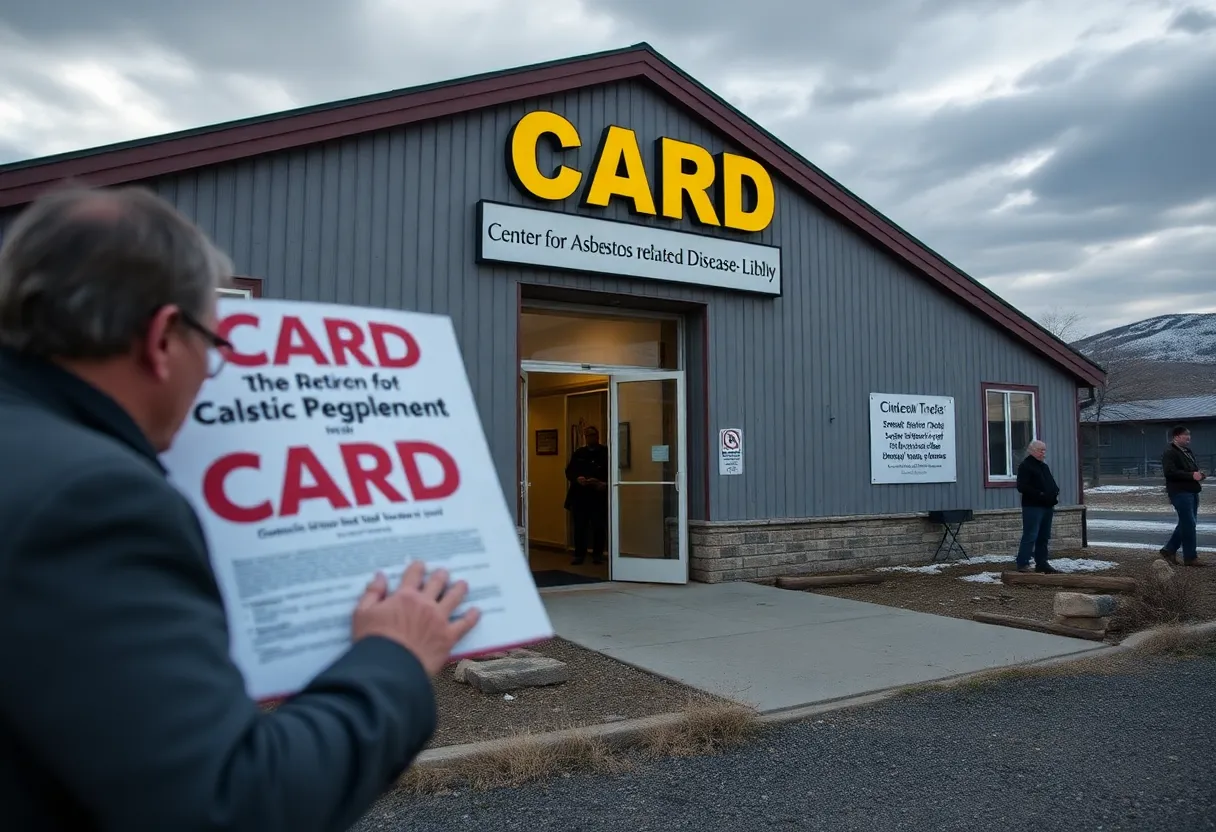News Summary
The Center for Asbestos Related Disease (CARD) in Libby, Montana, is under threat of closure due to legal issues and fraud allegations, raising public health concerns.
Controversy Erupts as Asbestos Clinic in Libby, Montana, Faces Closure Amid Legal Battle
A storm of controversy has engulfed the Center for Asbestos Related Disease (CARD) in Libby, Montana, as the clinic was shut down by the Lincoln County Sheriff’s Office following a court order. This drastic measure was taken to seize the clinic’s assets as part of a $3.1 million judgment owed to the BNSF Railway Company, which accused the clinic of fraudulently enrolling healthy patients to exploit government benefits.
Fraud Allegations and Legal Repercussions
The tumult surrounding CARD escalated after a jury found that a staggering 337 out of over 2,000 diagnoses issued by the clinic were deemed false. BNSF Railway, headquartered in Texas and under the ownership of Warren Buffett, contended that these fraudulent claims were made to secure Medicare services falsely for asbestos victims, long suffering from the consequences of exposure to the toxic substance.
Located about 50 miles from the U.S.-Canada border, the town of Libby, with a small population of around 3,000, has been heavily affected by asbestos pollution from a nearby mine that operated for decades. This mine was responsible for releasing asbestos dust, leading to severe and widespread health conditions among those who lived in or near the area.
Longstanding History of Support for Asbestos Victims
After operating for more than 20 years, offering crucial health screenings, monitoring, and treatment for asbestos-related illnesses, CARD finds itself at a critical juncture. Following the fraud judgment, the clinic filed for Chapter 11 bankruptcy protection in August 2023 but managed to continue its operations under a bankruptcy settlement designed to protect its assets, which were placed in trust for federal grants.
Burden of the Bankruptcy Judgment
The clinic’s bankruptcy attorney has claimed that BNSF’s aggressive collection efforts regarding the judgment violate the terms of the approved bankruptcy settlement. This contentious legal situation has precipitated an abrupt closure, raising concerns about the public health implications this could have.
CARD has emphasized the potential negative impact on public health, warning that the closure will lead to a significant reduction in screenings for asbestos-related conditions, which are vital in a community already struggling with the aftermath of asbestos exposure.
Financial Dependencies and Future Prospects
An internal email from CARD indicates that a staggering over 80% of the clinic’s budget relies on a grant from the Centers for Disease Control and Prevention (CDC), which currently remains under review. The ongoing uncertainty surrounding funding sources complicates the clinic’s ability to bounce back and retain its operations post-closure.
Legal Troubles Intensify
As the legal challenges mount, additional lawsuits have emerged, including a local case against CARD alleging medical malpractice and wrongful death regarding opioid prescriptions to patients who may have been misdiagnosed with asbestos-related diseases. This legal quandary further highlights the precarious position the clinic finds itself in.
The Asbestos Legacy of Libby
The vermiculite mine linked to Libby’s long-standing asbestos issues was operational from the 1920s until its closure in 1990, and in 2002, it was listed as a Superfund site by the Environmental Protection Agency (EPA). To this day, there are no definitive counts of how many residents have succumbed to diseases like asbestosis and mesothelioma, directly attributed to the hazardous exposure from the infamous mine.
Future Uncertain for the Community
As CARD pledges to fight for its reopening, the community remains in a state of uncertainty. The implications of this closure will undoubtedly reverberate through Libby, impacting the lives of many who depend on the clinic for essential healthcare in a region grappling with one of the most severe public health crises associated with asbestos exposure in history.
Deeper Dive: News & Info About This Topic
HERE Resources
Closure of Asbestos Clinic Leaves Libby Residents in Health Limbo
The Closure of the CARD Clinic: A Blow to Libby’s Asbestos Victims
Closure of the Center for Asbestos Related Disease Shakes Libby, Montana Community
The Closure of Libby’s Asbestos Screening Clinic: A Public Health Crisis
Asbestos Screening Clinic Closure Leaves Libby Residents in Jeopardy
Asbestos Clinic Closure Sends Shockwaves Through Libby Community
Asbestos Trade in India: A Carcinogenic Legacy and Ongoing Controversy
Family Seeks Witnesses After Kent Woman Dies from Mesothelioma
AEW’s EJ Nduka Parts Ways After Contract Expires
New Hope in the Fight Against Malignant Pleural Effusion: Exciting Pipeline Developments



















